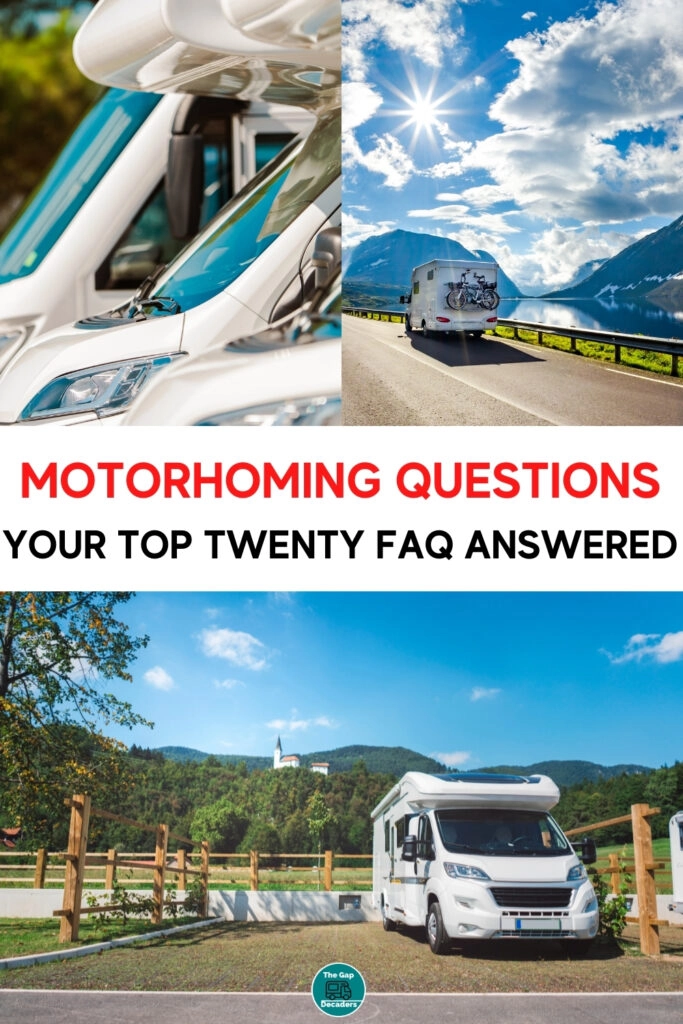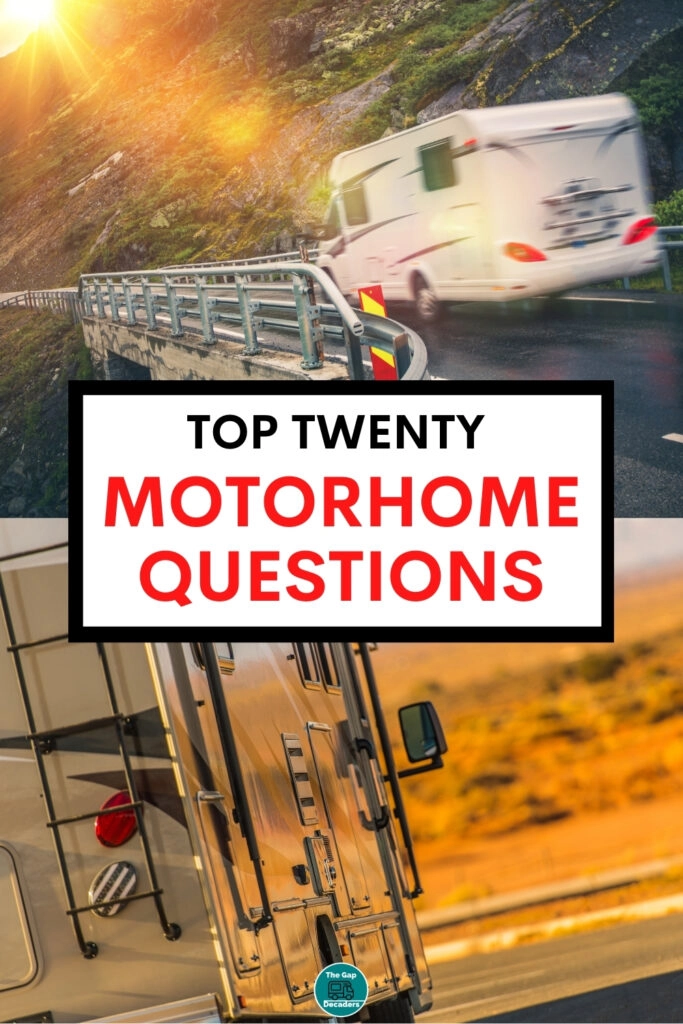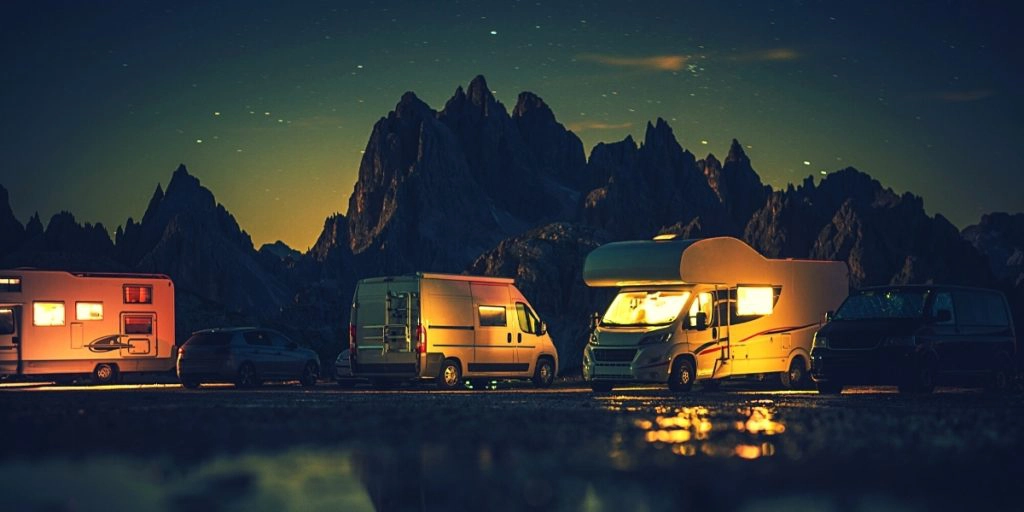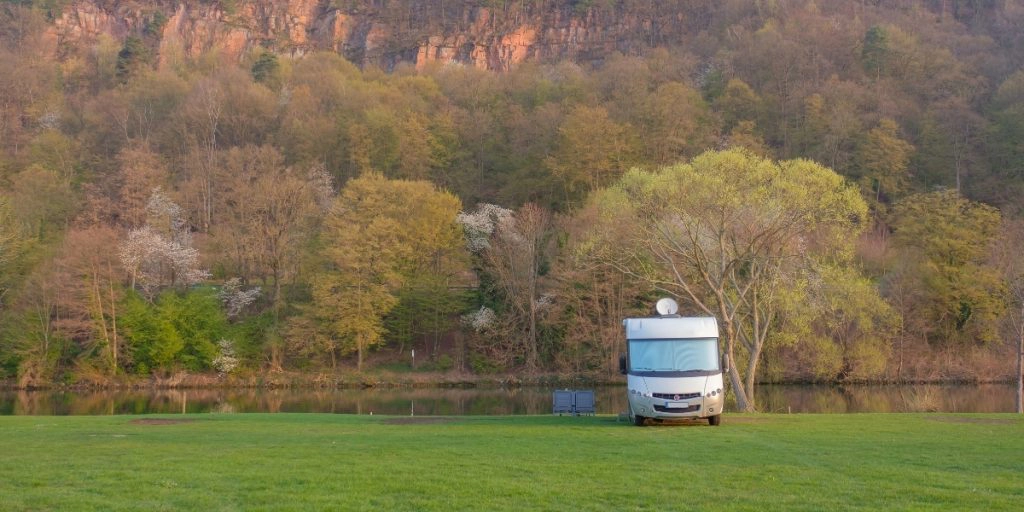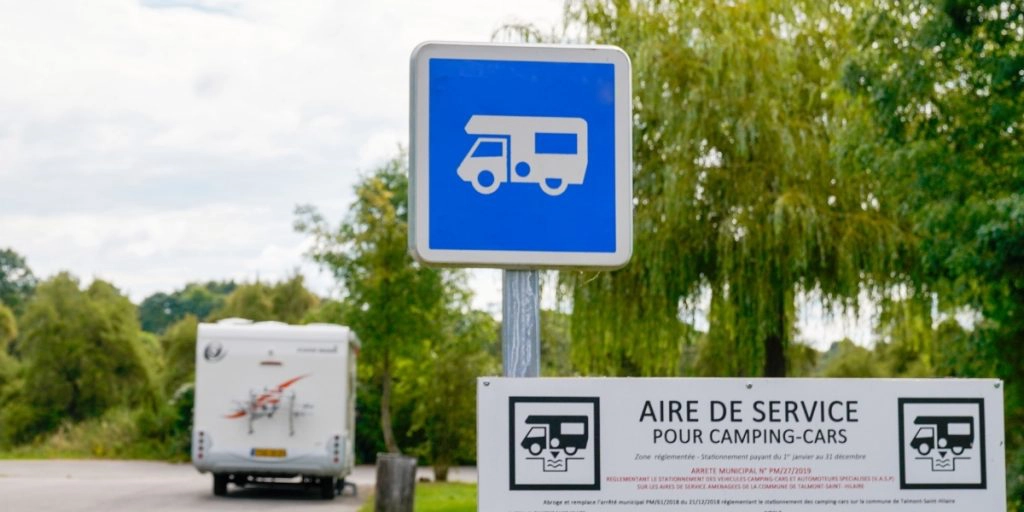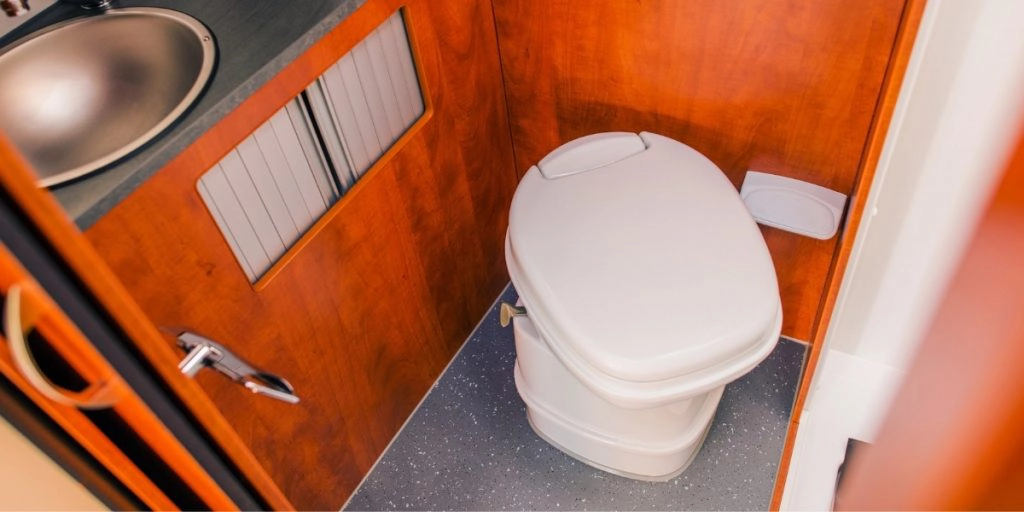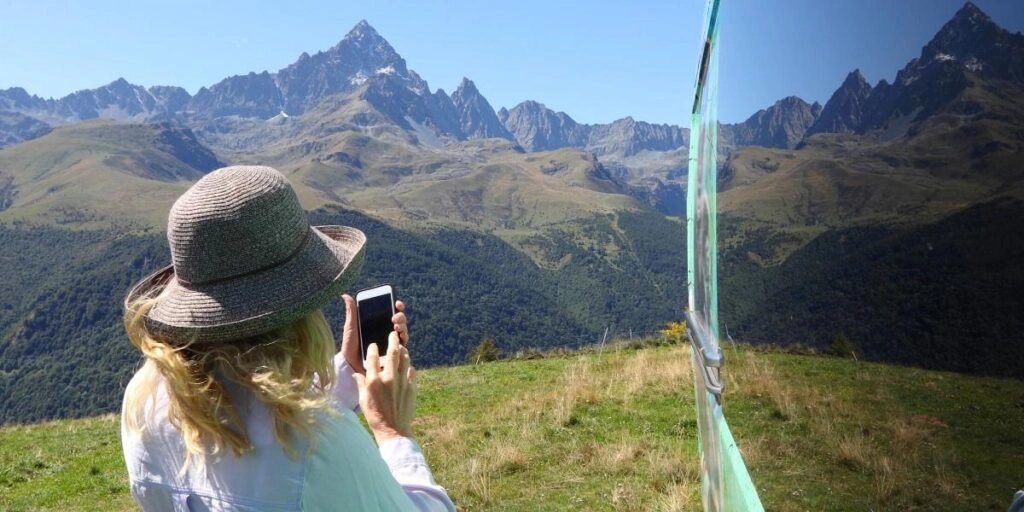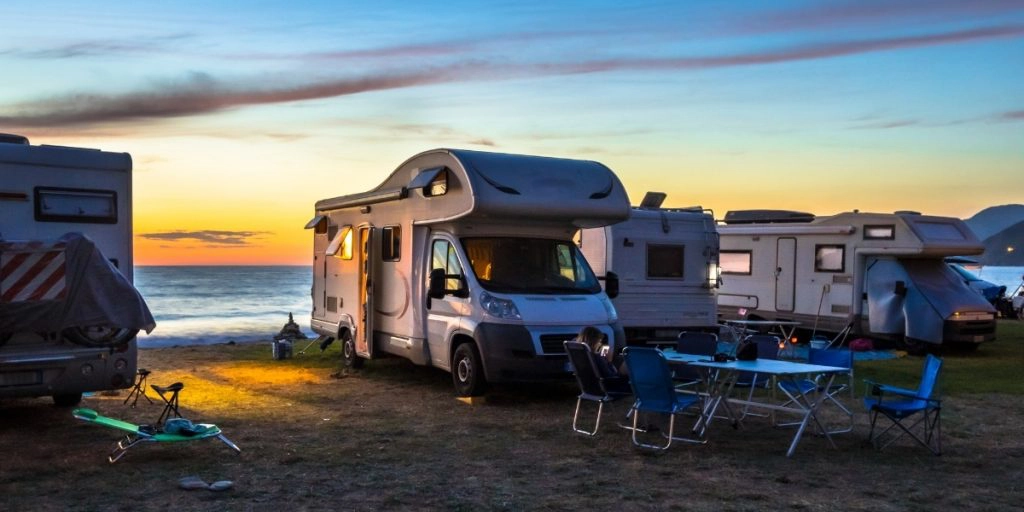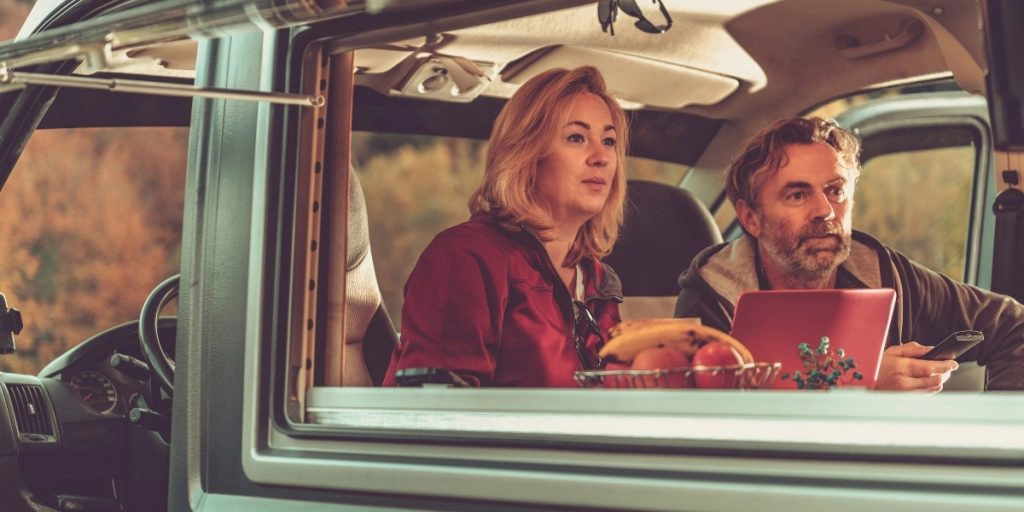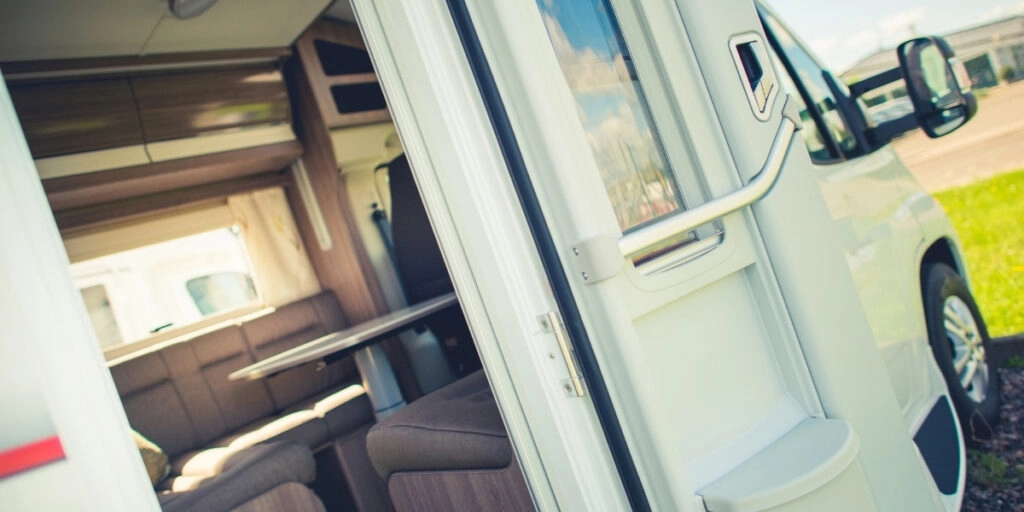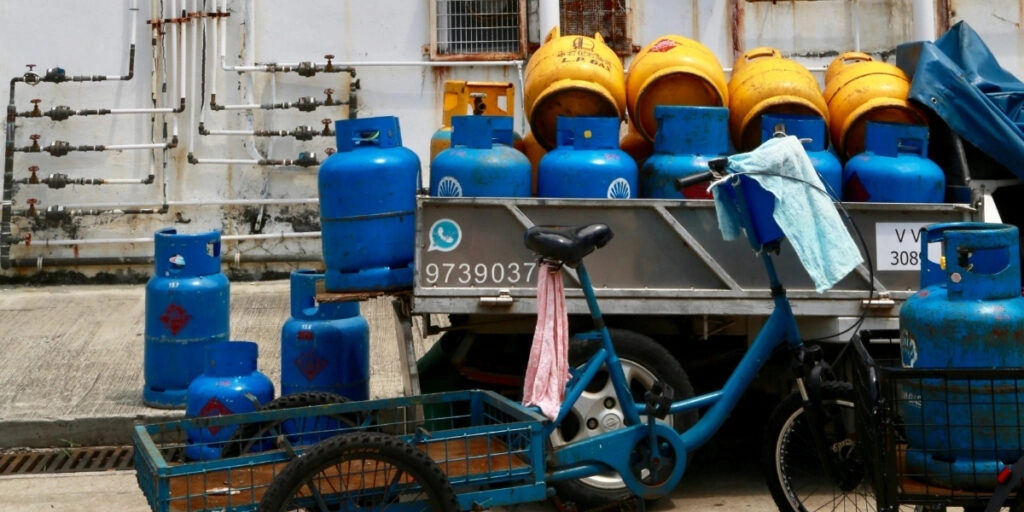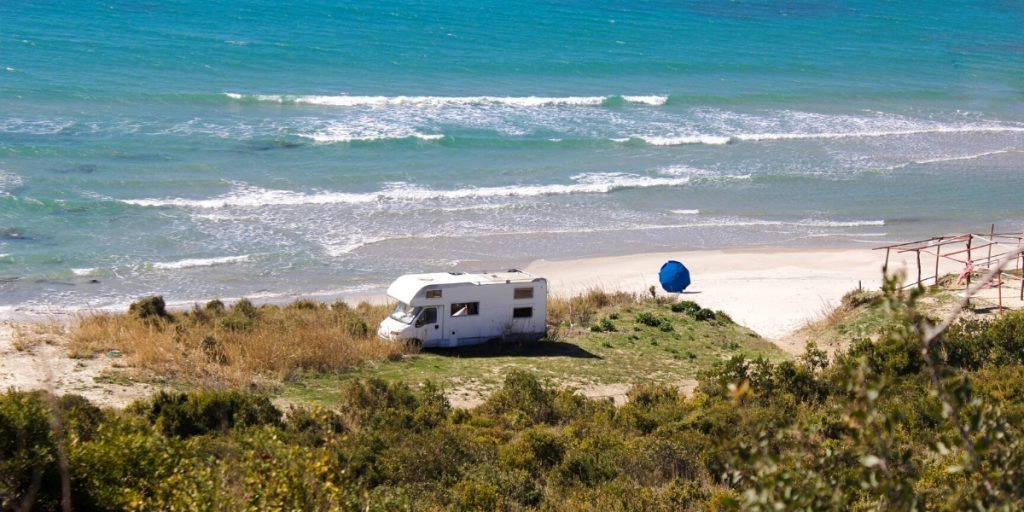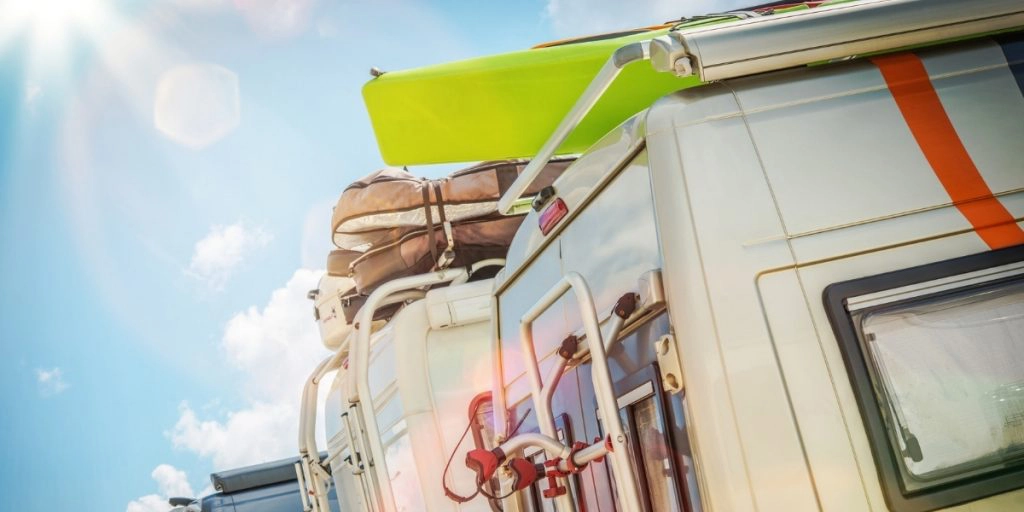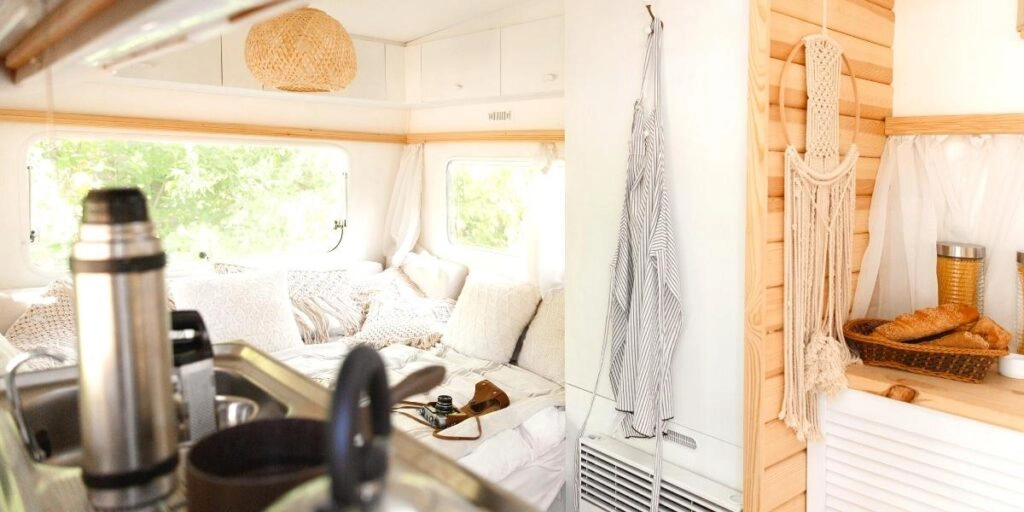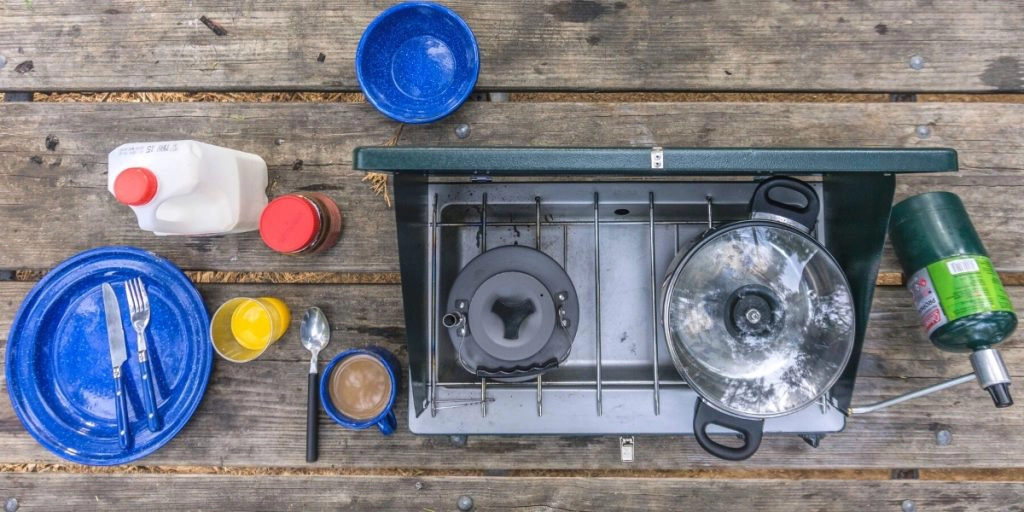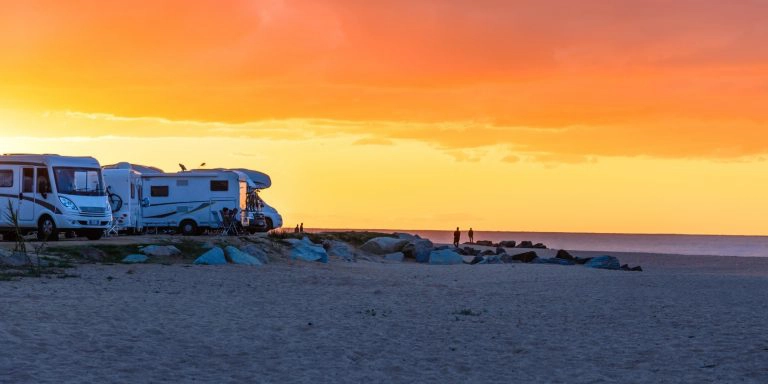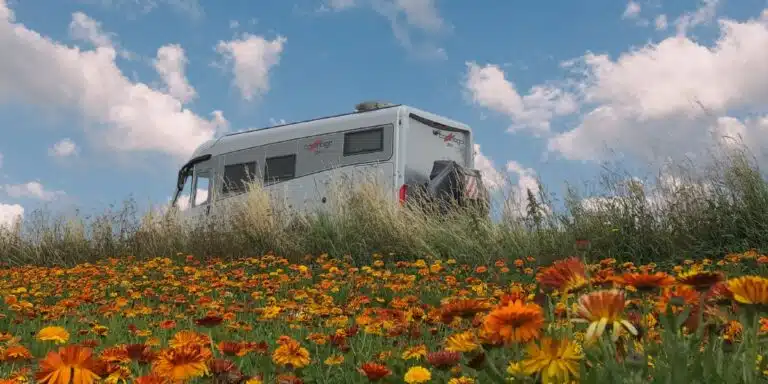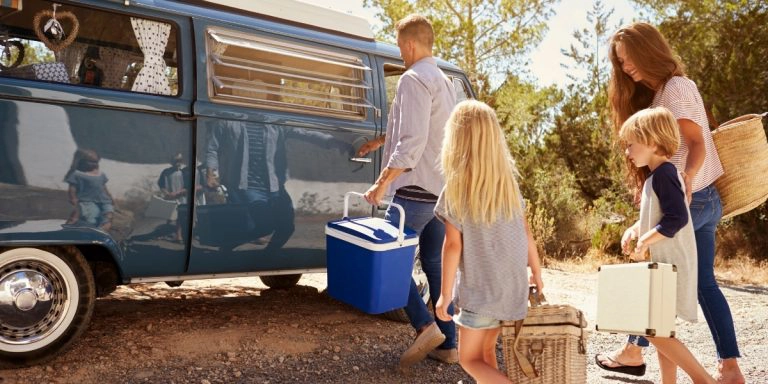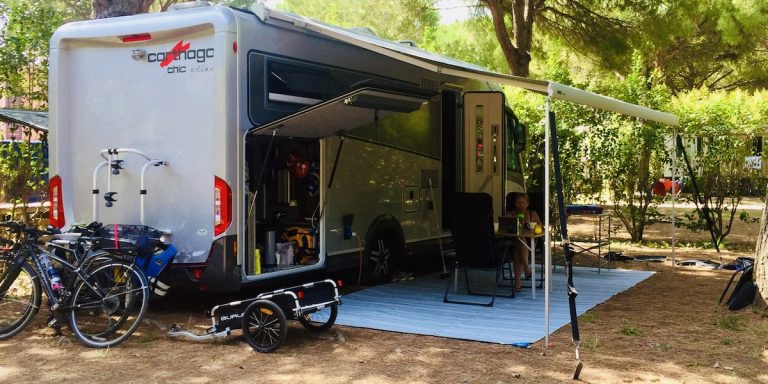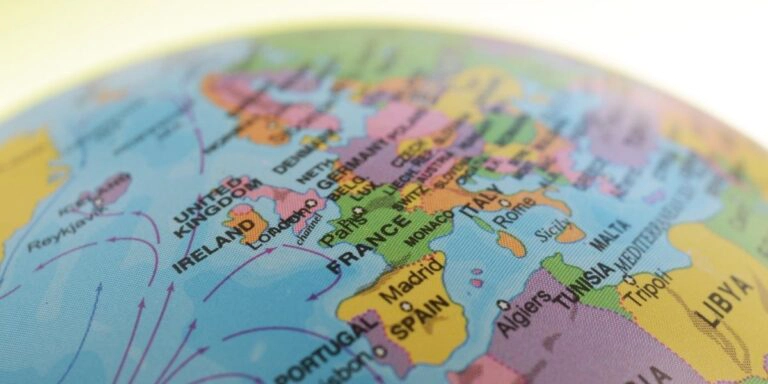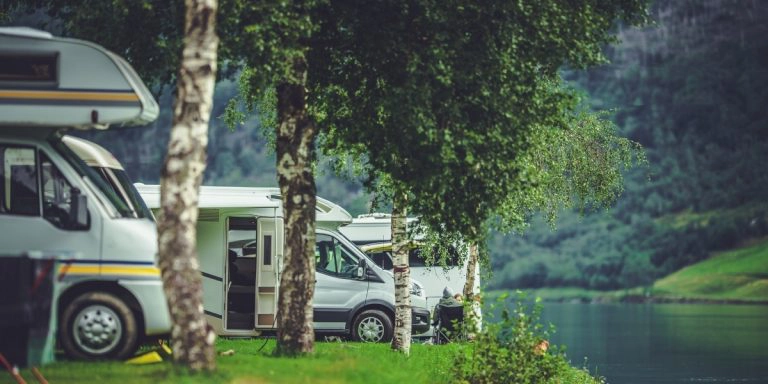This post may contain affiliate links, from which we earn an income. Click here to read our affiliate policy.
Motorhoming Frequently Asked Questions
Motorhoming is a fantastic way to travel, but van life is not always simple! How a motorhome works, or how to motorhome might not be obvious for new motorhome owners and we regularly get asked the same questions.
We gathered all these together in one place, along with our answers and useful tips to help your motorhoming journey go smoothly.
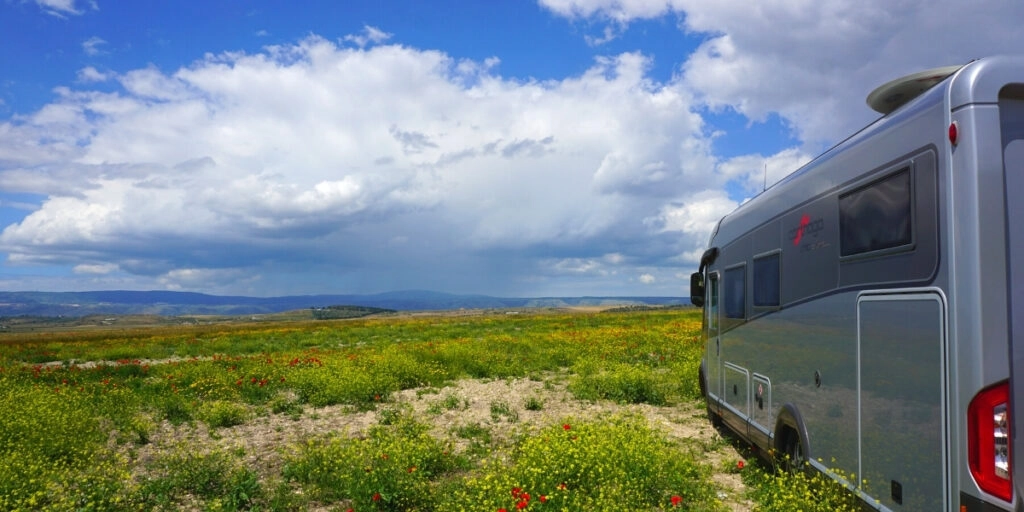
Why won’t my motorhome fridge work on battery?
Your motorhome fridge is designed to work on 12v, but the 12v from your engine battery and not your leisure battery. For your fridge to work from your 12v engine battery, the engine must be running, and in some motorhomes the power to the fridge won’t kick-in until the engine is revved a little or the motorhome is actually being driven.
You fridge won’t work on your 12v leisure battery when you’re stationary or parked up, unless you have an amazing solar set up or a compression fridge, which are much more efficient and consume less power.
If you have an AES (automatic energy selection) fridge then the correct power source will be selected depending on hierarchy – 230v, 12v and then gas. So, if you’re hooked up to 230v your fridge will always choose this option before choosing gas, which would be selected if the fridge does not detect any incoming 230v power from EHU (electric hook up) or 12v power from the engine. When the engine is turned off, the fridge waits for fifteen minutes before switching from 12v to gas – this delay is to ensure that gas operation is not possible when you stop at a fuel station.
If you don’t have an AES fridge, you need to select the power source yourself. Gas if not on EHU, or the little plug sign when you’re hooked up. Our free and downloadable motorhome departure checklist will help you remember to switch your fridge to 12v before your drive off.
Why don’t my motorhome plug sockets work?
Motorhomes are fitted with two electrical ring mains – 230v (just like at home) and 12v. The 230v system can only work when your motorhome is plugged in to the mains using your electric hook up socket, or you use an inverter to change the 12v power from your leisure battery to 230v. Both these options will power your three-pin plug sockets, like the plug sockets fitted in your home.
The 12v system draws electricity from your leisure battery and powers all the fitted electrical items in your motorhome such as your tv, water pump and lights. This circuit also powers your 12v sockets, but they don’t look anything like a three-pin socket!
Depending on the age and country of manufacture or your motorhome, you might have two-pin sockets or something more like a car cigarette lighter arrangement. You can buy adaptors online which mean you can plug in 12v items like kettles and phone chargers.
You can find out more about how motorhome electrical systems work and how to ensure you have enough power for your needs in this guide.
Why has one of my motorhome taps stopped working?
Lots of motorhomes are fitted with micro-switches on each tap. When the tap is opened, the micro-switch (which runs from your 12v system) tells the pump to pump water to the tap.
Kitchen micro-switches are notorious for getting caught in the workings under your sink, where there are water and waste pipes and often a drawer opening and closing. This can cause the switch to move or wiring to come loose.
If one of your taps stops working, check the others are ok. If the other taps work, return to the broken tap and listen carefully as you open it – you should hear a small click and then the pump will start whirring. If it’s the micro-switch, you won’t get any click and no pump noise. Micro-switches are easy to replace or even fix, you can find out more here.
If none of your taps work, you may have an air-lock in the pump (common on the first trip after a period of non-use) which you can often resolve by tapping the pump to encourage the air bubble to move through the system.
The Complete Guide for Motorhome Beginners
With our best motorhome tips and advice about motorhome basics to where to park for the night and ideas for touring Europe, this is the ultimate resource for motorhome newbies.
This motorhoming ebook will help you get to grips with the inner workings of your motorhome, giving you confidence for life on the road and your first motorhome adventure!
Can I use a hairdryer in my motorhome?
Yes, as long as you have the right set-up to do so. You have a few options:
Why isn’t my motorhome fridge cooling down?
It’s really a process of elimination to work this one out:
Why does my motorhome smell of rotten eggs?
This sulphur smell is caused by either your leisure batteries or your grey waste tank.
Check your leisure batteries first. If the smell is located in your garage or wherever your leisure batteries are fitted and they are fizzing (you’ll know if they are!) then your battery has ‘boiled’.
If this is the case, the battery will have discharged sulphuric acid onto itself and its container. You must assume the battery and container are both coated so do not touch them without heavy duty gauntlets. Isolate the battery in accordance with your motorhome instruction manual and buy a replacement.
If it’s not your batteries then grey waste will be the culprit. Motorhome waste tank smells can be really unpleasant and grey waste that has been sitting for a long time in a sealed container (i.e. your tank) can smell strongly of rotten eggs and sulphur because it has stagnated in the tank. You’ll need to flush through and clean out your grey waste tank and pipes with a heavy duty cleaning fluid like this one. You can find out how to clean your tanks in this post.
How do I fill up my motorhome with fresh water if I’m on a pitch for a week?
Some campsites offer fully-serviced pitches which means you can fill easily using a hose from your own dedicated tap. Others might have a water tap for every 6-8 pitches and a longer hose will enable you to fill from there.
Smaller sites often have one fresh water tap, so fill as you arrive. Then, you’ll need to do it the old-fashioned way and collect your water with a watering can or a plastic jerry can with a spout. Lots of people like to use the sanitary and washing-up facilities when they are staying in a campsite, meaning fresh water use from your on-board tank is minimal.
You can find lots of tips about managing your fresh water in this guide.
Why do I get condensation in my motorhome?
Motorhome condensation is caused by introducing moisture into the warm environment of your van. This moisture becomes trapped in the air and eventually settles as condensation inside your motorhome, on any surface that is colder than the dew point.
You can prevent condensation in your motorhome by ensuring there is circulating air and ventilation to take the moisture laden air away. You can find out more about the causes and how to prevent condensation in this post.
Where can I empty my motorhome toilet cassette?
Ideally, you should empty your cassette toilet at a designated chemical waste emptying point, sometimes called an Elsan point (Elsan first introduced the chemical toilet to the world in the 1920s and the term has become synonymous with chemical toilets). All campsites will have a chemical toilet emptying point.
Technically you can empty your cassette toilet into any regular toilet as all toilet waste, regardless of whether it’s from a regular loo or a holding tank on a campsite, goes into the foul sewer and from there, to a water treatment plant.
In practice, emptying into a normal loo is not ideal – the general public might view you a bit suspiciously and it’s hard to clean up properly in a public WC. You can find designated chemical toilet and motorhome service points on the Park4Night app.
You can find out everything you ever wanted to know about motorhome toilets in this guide.
Can I get internet in my motorhome?
Absolutely! You can use a system very similar to the one you use at home to get wifi in your van. Instead of a large home-sized router, you can use a mini-router called a mifi with a data only SIM card.
The mifi can provide wifi to up to ten devices and can be mounted somewhere discreet in your motorhome – some even have roof aerials to boost the 4g signal. You can find out more about motorhome wifi and internet in this guide.
Do I need a special licence to drive a motorhome?
It depends on how old you are. The type of driving licence you have will affect the type of motorhome you’re able to drive.
If you passed your car driving test on or after 01/01/1997, you are limited to driving a vehicle of no more than 3,500kg maximum weight. If you passed your test before that date, you can drive a vehicle that weighs up to 7,500kg.
Once you reach the age of 70, you will only be licensed to drive vehicles up to 3,500kg, unless you apply to the DVLA and undergo regular medical checks to keep your entitlement to drive up to 7500kg, which you need to repeat every three years.
Where do motorhomers find free places to park overnight?
If you want to park for free overnight or wild camp and stay off grid when motorhome touring, there are lots of online tools and apps to help you find the best places.
Wild camping is becoming increasingly difficult in the UK, a country with lots of people and not much space! Head to Europe for the best experiences, where countries tend to be more welcoming and don’t mind wild camping and free parking ( as long as you stick to the rules).
Find all the top apps to help you stay off grid in this post.
Will my television work abroad?
Yes, if you have the right set-up. A normal tv aerial won’t work in Europe – you either need a satellite system to watch UK television, or you need to stream from your phone to your motorhome tv.
Whichever system you choose, you won’t just be able to arrive on the continent and switch on. Satellite systems need a receiver and you will need a subscription to a provider for this.
To stream programmes or films from your smartphone to your motorhome tv, you need to ensure you have enough mobile phone data and the apps for whichever channel you want to watch downloaded to your phone. You can find out all you need to know about watching tv in your motorhome in this guide.
Is an annual habitation check a legal requirement?
The safe operation of your motorhome is your responsibility, but there is no legal requirement to have an annual habitation check, and there is no MOT equivalent for the habitation area of your motorhome.
You may be legally required to have a yearly certified gas safety check if you hire or rent your motorhome on a commercial basis, but you should check this with the company organising the rental for you.
If you buy a new motorhome, the motorhome manufacturer will make having an annual habitation check a condition of the warranty.
There are lots of reasons to have a hab check, which you can read about in this post, along with a motorhome checklist to help you do your own!
Can I use UK gas bottles in Europe?
You can only use refillable systems like Gaslow and Gasit, or gas bottles which are designed to be refilled, like Safefill, in Europe. This is because there is legislation in place across the EU to prevent overfilling of regular gas bottles at the pump.
You can take your normal gas bottle to Europe but you won’t be able to exchange it. You can buy gas in bottles in Europe just like in the UK, but you will need a country specific regulator for the gas bottle (which you can usually buy for a few euros).
Check out this guide for all the info you need.
What is motorhome wild camping & how do I do it?
Wild camping in a motorhome basically means finding somewhere to stop overnight that is off-grid and free. This could be atop a cliff with a sea view, or in a supermarket car park – all are classed as wild camping, although we would call the latter free parking!
All motorhomes can spend a few nights off-grid with the power stored in the leisure batteries, a full tank of fresh water and an empty toilet cassette. It’s easy to find sites by using an app like Park4Night to identify spots close to you, or when you are road trip planning before your trip.
If you want to give wild camping a go, you can find out about rules, equipment and some of our favourite spots in our wild camping motorhome guide.
How do I know what my motorhome payload is?
Payload is the difference between the Mass in Running Order or MRO (the weight of your new motorhome when it rolls off the production like + the nominal weight of a driver and half a tank of fuel), and the Maximum Authorised Mass (MAM) or Gross Vehicle Weight (GVW).
The motorhome manufacturer or dealer should be able to tell you the MRO of your motorhome – some manufacturers include different weights in their calculations (such as a full gas bottle and fresh water) so it’s important to check and get the correct figure.
The MAM or GVW is the top figure shown on your motorhome weight plate and the total weight your motorhome is allowed to be once loaded up. So, a motorhome with an MRO of 3,000kg and a MAM of 3,500kg would have a payload of 500kg.
It’s important to stay within the allowed weight – go over and it will affect handling, invalidate your motorhome insurance and add unnecessary wear and tear to the vehicle. It’s also illegal and if stopped and found to be overweight, you can be fined and have points added to your licence. You can find lots of information about motorhome weights in this guide.
RELATED POST: Motorhome Glossary – A-Z of Terms & What They Mean
Do I need special motorhome accessories?
You might do. There are some things, like non-breakable tableware and 12v appliances that could be called motorhome accessories, but equally they could be camping or caravan accessories! Anything that’s lightweight, easy to store and multi-purpose could be classed as a motorhome accessory, but you could bring your cutlery, cooking equipment and bedding from home – there’s no need to buy ‘special’ motorhome equipment.
Having said that, if you go away in your motorhome regularly, it’s nice to have a set of everything you need already in the van so you don’t have to pack up every time – it certainly makes motorhome travel that bit easier.
You can find all out top essential motorhome gear and gadgets in these posts.
How much does it cost to travel in a motorhome?
Motorhoming is definitely a lifestyle choice – don’t choose van life thinking its a cheap way to take holidays, it’s not!
Owning a motorhome means you have the ongoing costs of maintaining and running your home on wheels. You also need to pay for campsites (unless you wild camp) and all your day to day living expenses when you’re away.
So much depends on your make, model and age of motorhome, where you want to holiday or travel to and how you want to spend your time when you’re away, that’s it’s impossible to fully answer this question, but we do provide some indicative costs in this post.
What’s your top motorhome tip?
Lol :), that’s almost impossible to answer!
If it’s near 6pm, I’d say not to forget the corkscrew.
First thing in the morning, I would say to buy the best mattresses you can afford!
In the middle of the day I would most definitely say that the key is not to overthink things, just relax and enjoy. There’s no mystery to being a motorhomer, you just need a bit of common sense and a can-do approach, but if you didn’t have those you wouldn’t have bought a motorhome!
Did we answer your question? If not, ask it here…
Are you looking for more motorhoming advice? Check out these top posts…
Buying a Motorhome That’s Right for You – All You Need to Know
Motorhoming Tips for Beginners: Essential Know How for Motorhome Life
20 Amazingly Simple Camper Hacks
How to Take Your First Motorhome Trip (& have an amazing time!)
The Best Motorhome Holidays in Europe
Motorhomers Choice – Top 10 Motorhome Campsites UK
Love it? Pin it!
